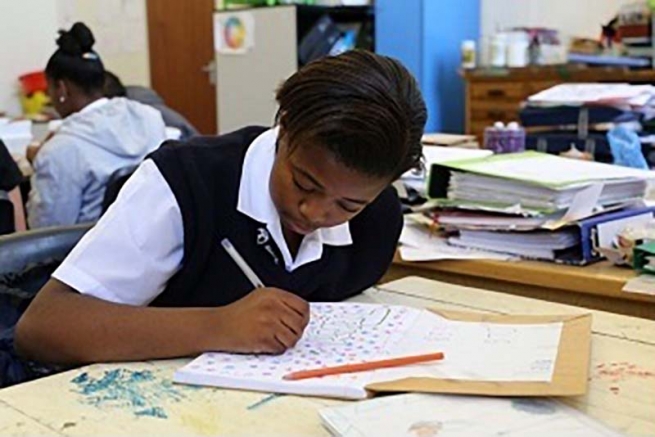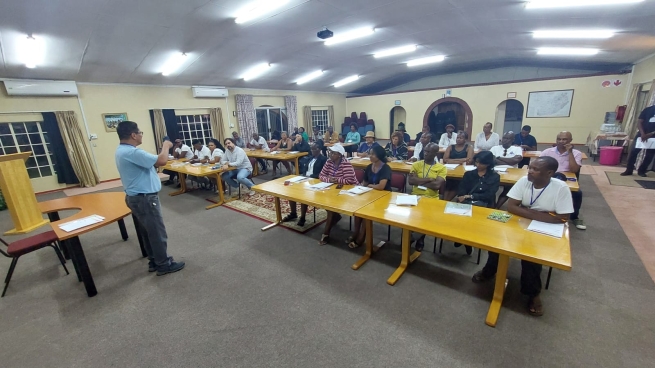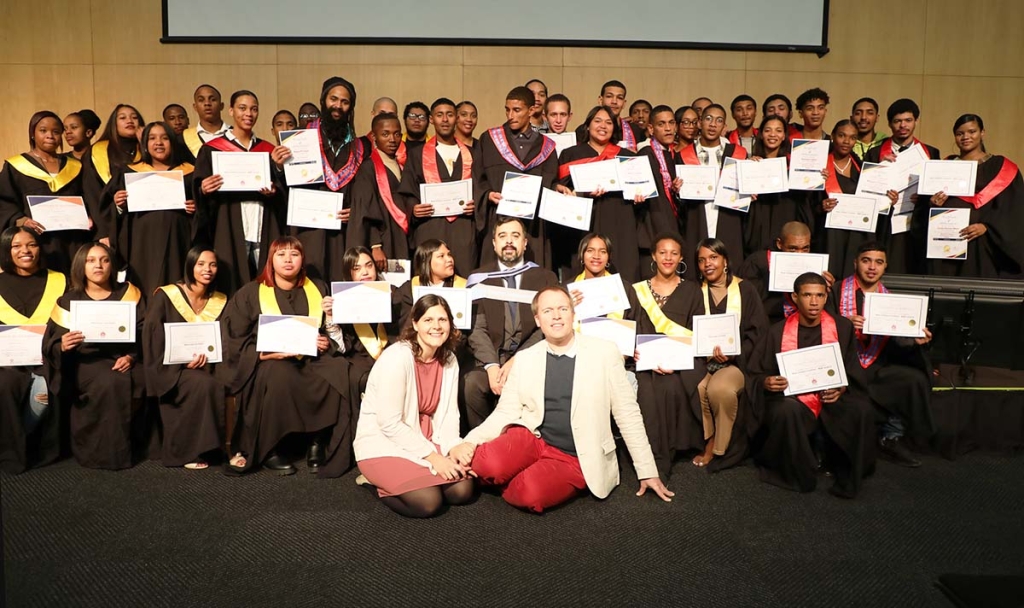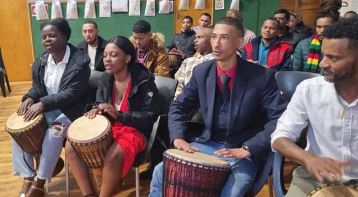SOUTH AFRICA: Salesian Institute Gives At-Risk Youth a Second Chance for Productive Future

(MissionNewswire) Salesian Father Patrick Naughton, from Ireland, has been serving youth as a missionary in South Africa for more than 30 years. He is currently the economer of the Salesian Institute in Cape Town. Throughout his time as a missionary, Fr. Naughton has worked tirelessly to improve the lives of vulnerable and at-risk children and older youth. Salesian missionaries have been working in South Africa since 1896 and are leaders in the fight against poverty.
Since 1910, the Salesian Institute has been helping homeless, unemployed and impoverished youth in Cape Town, the second most populous city and legislative capital of South Africa. Through the Institute’s Youth Projects program, Salesians provide shelter, education and workforce development services, meeting the basic needs of the youth they serve while helping them break the cycle of poverty.
The Institute’s Youth Projects consist of five main programs—an outreach program, the Center of Hope for homeless youth, a Learn-to-Live education program and two workforce development programs. The projects are managed by a diverse team, some of whom live on the premises to support youth in the hostel and outreach programs.
The Institute’s Center of Hope provides a home for abandoned youth as well as technical and vocational classes. It is the only recognized school for street children in the country. Every day, 40 to 90 children and teens attend classes. The number fluctuates so wildly because the students show up when they feel like it.
“Teaching these kids is extremely difficult,” says Fr. Naughton. “They can’t stay focused for more than a quarter of an hour. The classes are composed of a maximum of 10 pupils and the level is not comparable to that of other schools. Nevertheless, here everyone has the opportunity to learn and change.”
The Institute’s Learn-to-Live education program is a school designed specifically for vulnerable and at-risk children and youth. Recognized as an independent school by the Western Cape Education Department, the program provides basic education and skills training for youth at risk who, for a variety of socio-economic reasons, are not able to succeed in mainstream schools. The school offers various levels of education for 13- to 19-year-old students. All students participate in academic classes and skills workshops and receive a cooked meal each day. Demand for the program is high, and 100 youth from the local communities and shelters in and around Cape Town access the program each day.
As part of the Learn-to-Live program, close to 40 youth over the age of 16 attend technical skills training workshops each day where they are taught basic skills in welding, wood and leather craft as well as panel beating. The items they create are sold at local craft markets. Over the past three years, the program has secured partnerships with construction and engineering firms that employ youth from the program.
Poverty is extensive in South Africa with more than 45 percent of the population and more than 63 percent of children living below the poverty line, according to UNICEF. A significant percentage of the population struggles to survive on less than one dollar a day. The country is plagued by high crime rates and violence against women and girls and has been the hardest hit by the HIV/AIDS crisis in the world. There is an urgent need for education to help prevent the spread of the deadly virus and to help lift youth out of poverty.
Salesian missionaries have been working to restore hope in South Africa, particularly among poor youth. From empowering girls and young women to building schools and teaching trade skills, missionaries have a long history of affecting change in the country.
###
Sources:
ANS – South Africa – Salesians cultivate hope. Through concrete projects
UNICEF – South Africa




